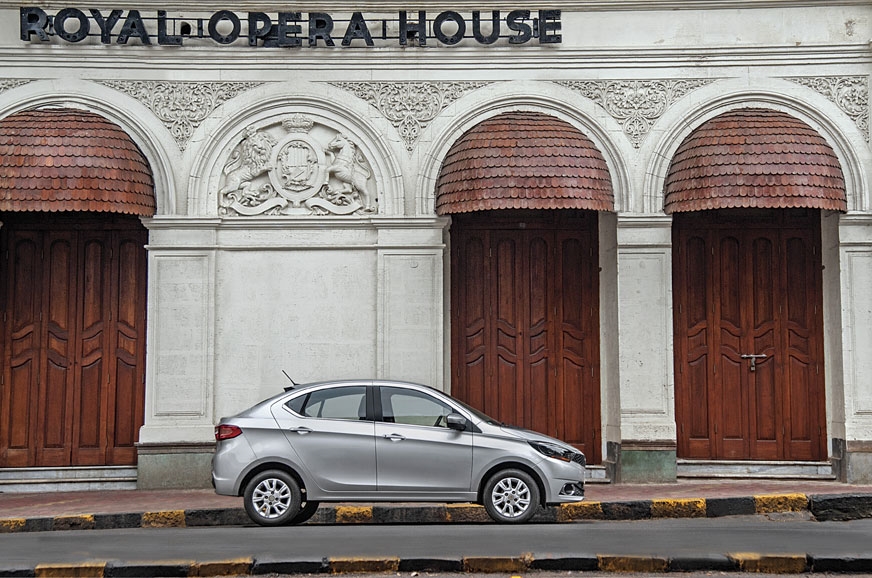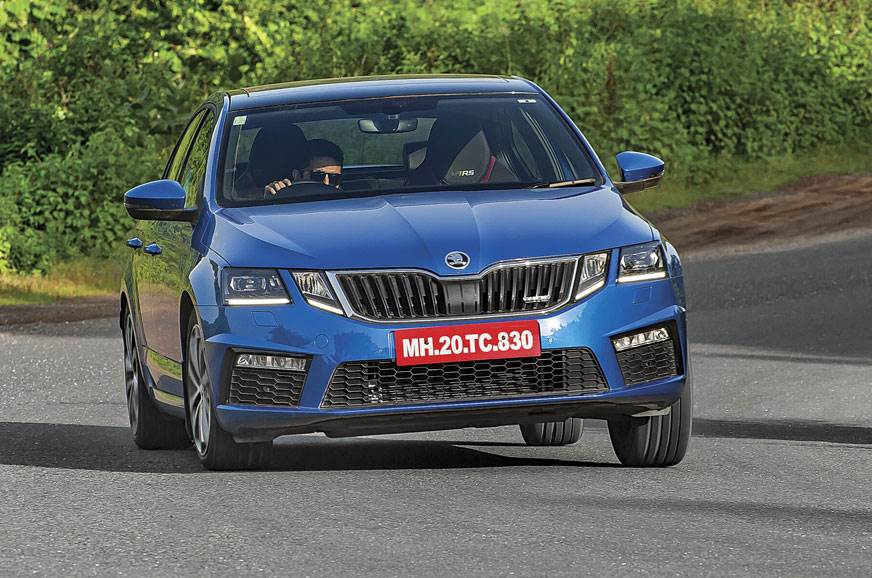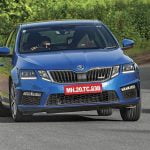
New-gen Tata cars like the Zest, Hexa and the Tiago have been doing well to put the brand back in the highly contested passenger vehicle arena. We had the Tiago for a year, which endorsed our belief that Tata Motors has really upped its game in the aspects of fit and finish and overall build quality. So, when the Tigor came to us, I happily accepted the keys. Our Tiago long-termer was with me for most of its tenure in our fleet and I found it to be one of the most comfortable hatchbacks currently on sale. And now, after using the Tigor for over a month, I can confirm that it picks up where the Tiago left off. The Tigor won my heart the day I saw its design, especially the neatly integrated boot which, makes it look more like a slant-back than a three-box sedan.
My stint with the Tigor started when I first took it to the airport to pick my sister up and, like most Indians, she does not travel light. I usually take a larger vehicle from the office for trips to the airport but this time I was quite confident that the Tigor’s large 419-litre boot would be sufficient for even my sister’s luggage. In fact, the Tigor surprised her by swallowing her two large bags and the gas struts for the boot opening made sure loading and unloading were unhindered. A neat little touch is the dedicated cargo light inside the boot; how many compact sedans get that?
Once inside, what I like about the Tigor’s dashboard are the multiple shades that make it look classy, especially the liberal use of piano black finish around the centre console, side AC vents and on the steering wheel. Our top-spec Tigor gets a touchscreen infotainment system, which I found to be a bit slow to respond. After fumbling around with the touchscreen, I finally gave up and used the rotary switches to select functions. Tata offers an app-based navigation system on the Tigor that can be used via your mobile phone. It’s surprising there’s no standalone GPS system, which quite a few of its rivals, and even cheaper hatchbacks like the Kwid, offer. Also, there’s some lag when you use the steering-mounted controls for the radio or volume. In comparison, the Tiago’s controls worked more smoothly. The infotainment screen on the compact sedan doubles as a screen for the reverse camera. While this is a handy feature, it is of little use during the day as the screen glare makes it almost unreadable. To fix this, Tata will have to upgrade the screen resolution. However, you do get parking sensors as an additional reversing aid. This is of great help, as reversing the Tigor, especially in tight spots, can be quite tricky due to the high-set boot which limits visibility at the rear. For passengers at the back, legroom is decent, thanks to the scooped-out front seatbacks, and Tata’s also included an armrest with dual cupholders.
Entertainment on the go is courtesy the superb Harman music system, as on the Tiago.
Our Tigor comes with a 1.0-litre diesel engine. This 70hp motor feels underpowered; it takes its own time to build up speed and loses steam post 3,800rpm. I have, however, found a hack – keep it in the 2,500-3,500rpm band and that’s where it feels happiest while cruising. Once below 2,500 rpm, you end up shifting a cog down in order to stay with the traffic flow. For a diesel car, the clutch is relatively light and that’s a good thing.
Tata still doesn’t believe in sending its cars to the gym. We’ve seen this in the Tiago, and at 1,130kg, the Tigor is no different. But what this means is that the doors are heavy and shut with a proper ‘thud’ and, even at highway speeds, the ride is quite planted. I did take the car outside the city a few times and the engine, after a bit of caressing and a lot of patience, does cross 130kph, which is not bad at all. However, you do hear that thrummy engine noise in the cabin. As far as ride quality goes, the Tigor diesel comes with a slightly stiffer suspension setup as compared to its petrol counterpart. It does feel a bit hard on Mumbai’s pothole-ridden roads but is, overall, manageable.
After using petrol cars like the Kwid and the Tiago for my daily commute, the diesel-powered Tigor has been a welcome change as far as my finances go. Our long-termer is still in its breaking-in period and currently has a fuel economy figure of around 13kpl, which isn’t impressive for a small diesel engine. However, we do expect it to go up as the car clocks in more kilometres.
[“Source-autocarindia”]





